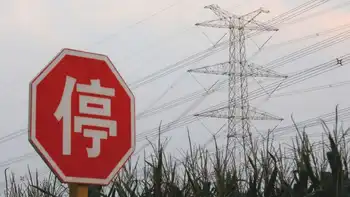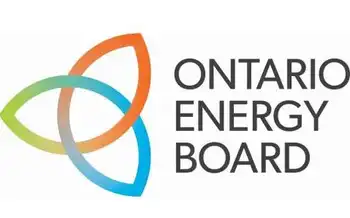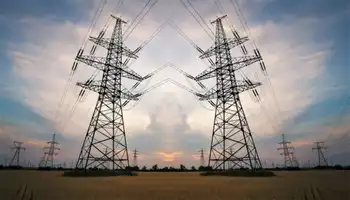Montana New Energy Economy integrates grid modernization, renewable energy, storage, and demand response to cut costs, create jobs, enable electric transportation, and reduce emissions through utility-scale efficiency, real-time markets, and distributed resources.
Key Points
Plan to modernize Montana's grid with renewables, storage and efficiency to lower costs, cut emissions and add jobs.
✅ Grid modernization enables real-time markets and demand response
✅ Utility-scale renewables paired with storage deliver firm power
✅ Efficiency and DERs cut peaks, costs, and pollution
Over the next decade, Montana ratepayers will likely invest over a billion dollars into what is now being called the new energy economy.
Not since Edison electrified a New York City neighborhood in 1882 have we had such an opportunity to rethink the way we commercially produce and consume electric energy.
Looking ahead, the modernization of Edison’s grid will lower the consumer costs, creating many thousands of permanent, well-paying jobs. It will prepare the grid for significant new loads like America going electric in transportation, and in doing so it will reduce a major source of air pollution known to directly threaten the core health of Montana and the planet.
Energy innovation makes our choices almost unrecognizable from the 1980s, when Montana last built a large, central-station power plant. Our future power plants will be smaller and more modular, efficient and less polluting — with some technologies approaching zero operating emissions.
The 21st Century grid will optimize how the supply and demand of electricity is managed across larger interconnected service areas. Utilities will interact more directly with their consumers, with utility trends guiding a new focus on providing a portfolio of energy services versus simply spinning an electric meter. Investments in utility-scale energy efficiency — LED streetlights, internet-connected thermostats, and tightening of commercial building envelopes among many — will allow consumers to directly save on their monthly bills, to improve their quality of life, and to help utilities reduce expensive and excessive peaks in demand.
The New Energy Economy will be built not of one single technology, but of many — distributed over a modernized grid across the West that approaches a real-time energy market, as provinces pursue market overhauls to adapt — connecting consumers, increasing competition, reducing cost and improving reliability.
Boldly leading the charge is a new and proven class of commercial generation powered by wind and solar energy, the latter of which employs advanced solid-state electronics, free fuel and no emissions or moving parts. Montana is blessed with wind and solar energy resources, so this is a Made-in-Montana energy choice. Note that these plants are typically paired with utility-scale energy storage investments — also an essential building block of the 21st century grid — to deliver firm, on-demand electric service.
Once considered new age and trendy, these production technologies are today competent and shovel-ready. Their adoption will build domestic energy independence. And, they are aggressively cost-competitive. For example, this year the company ISO New England — operator of a six-state grid covering all of New England — released an all-source bid for new production capacity. Unexpectedly, 100% of the winning bids were large solar electric power and storage projects, as coal and nuclear disruptions continue to shape markets. For the first time, no applications for fossil-fueled generation cleared auction.
By avoiding the burning of traditional fuels, the new energy technologies promise to offset and eventually eliminate the current 1,500 million metric tons of damaging greenhouse gases — one-quarter of the nation’s total — that are annually injected into the atmosphere by our nation’s current electric generation plants. The first step to solving the toughest and most expensive environmental issues of our day — be they costly wildfires or the regional drought that threatens Montana agriculture and outdoor recreation — is a thoughtful state energy policy, built around the new energy economy, that avoids pitfalls like the Wyoming clean energy bill now proposed.
Important potential investments not currently ready for prime time are also on the horizon, including small and highly efficient nuclear innovation in power plants — called small modular reactors (SMR) — designed to produce around-the-clock electric power with zero toxic emissions.
The nation’s first demonstration SMR plant is scheduled to be built sometime late this decade. Fingers are crossed for a good outcome. But until then, experts agree that big questions on the future commercial viability of nuclear remain unanswered: What will be SMR’s cost of electricity? Will it compete? Where will we source the refined fuel (most uranium is imported), and what will be the plan for its safe, permanent disposal?
So, what is Montana’s path forward? The short answer is: Hopefully, all of the above.
Key to Montana’s future investment success will be a respectful state planning process that learns from Texas grid improvements to bolster reliability.
Montanans deserve a smart and civil and bipartisan conversation to shape our new energy economy. There will be no need, nor place, for parties that barnstorm the state about "radical agendas" and partisan name calling – that just poisons the conversation, eliminates creative exchange and pulls us off task.
The task is to identify and vet good choices. It’s about permanently lowering energy costs to consumers. It’s about being business smart and business friendly. It’s about honoring the transition needs of our legacy energy communities. And, it’s about stewarding our world-class environment in earnest. That’s the job ahead.
Related News












